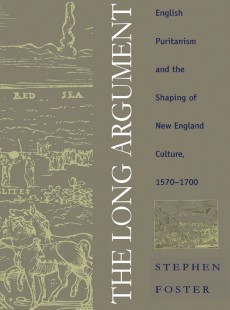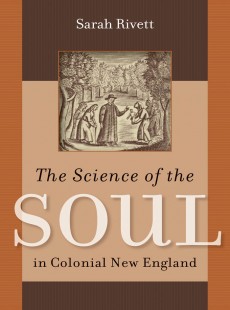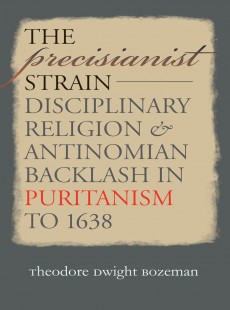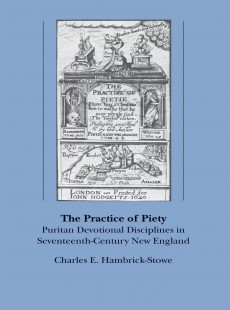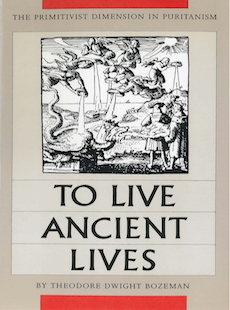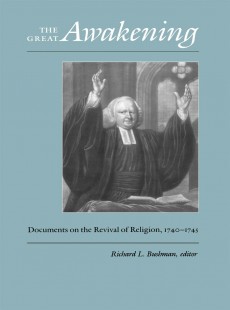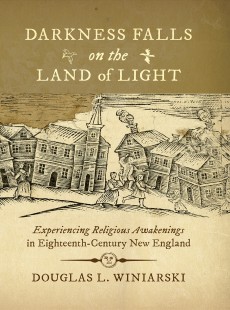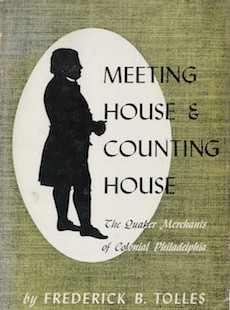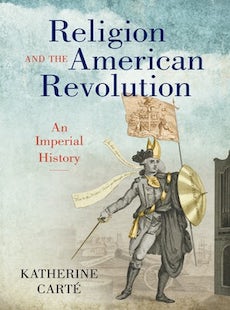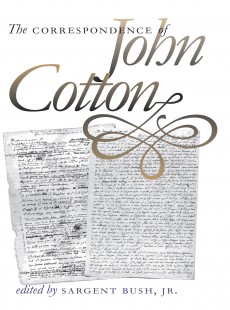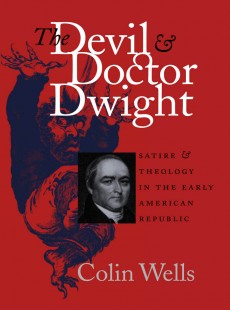
The Devil and Doctor Dwight
Satire and Theology in the Early American Republic
Colin Wells
 Publisher: Omohundro Institute
Publisher: Omohundro Institute
Imprint: OIEAHC
Published: 04/2002
Reprint: 2002
Pages: 272
Subject: Literary Criticism, Religion, History
Paperback ISBN: 9780807853832
eBook ISBN: 9780807839058
DESCRIPTION
At the close of the eighteenth century, Timothy Dwight--poet, clergyman, and, later, president of Yale College--waged a literary and intellectual war against the forces of "infidelity." The Devil and Doctor Dwight reexamines this episode by focusing on The Triumph of Infidelity (1788), the verse satire that launched Dwight's campaign and, Colin Wells argues, the key to recovering the deeper meaning of the threat of infidelity in the early years of the American Republic. The book also features the first modern, annotated edition of this important but long-overlooked poem.
Modeled after Alexander Pope's satiric masterpiece, the Dunciad, Dwight's poem took aim at a number of his contemporaries, but its principal target was Congregationalist Charles Chauncy, author of a controversial treatise asserting "the salvation of all men." To Dwight's mind, a belief in universal salvation issued from the same naive faith in innate human virtue and inevitable progress that governed all forms of Enlightenment thought, political as well as religious. Indeed, in subsequent works he traced with increasing dismay a shift in the idea of universal salvation from a theological doctrine to a political belief and symbol of American national identity. In this light, Dwight's campaign against infidelity must also be seen as an early and prescient critique of the ideological underpinnings of Jeffersonian democracy.
ABOUT THE AUTHOR
Colin Wells is associate professor of English at St. Olaf College in Northfield, Minnesota.
REVIEWS
"Wells is to be thanked for the work of literary recovery he has accomplished. . . . Wells has given us a great gift in his textual editing."
--Christianity & Literature
"Erudite, densely argued, and richly multidisciplinary. . . . A significant contribution to our understanding of the American Enlightenment, particularly of the interpenetration of political and religious convictions throughout the early national period. . . . Wells shows us just how essential revaluation of American Augustan literature is to an understanding of the complex discursive nature of early national imaginings of the republic."
--William and Mary Quarterly
"A welcome and timely book."
--Early American Literature
"At the end of the eighteenth century one American realized that the Enlightenment's attack on revealed religion was not a rational critique but the assertion of a rival, man-centered belief system. . . . Here at the beginnings of the most fundamental of all American culture wars, Colin Wells discovers the most eloquent voice warning Americans against national and individual self-celebration."
--David S. Shields, The Citadel
"No one has demonstrated so cogently the interpenetration of Augustinian and Augustan elements in eighteenth-century American Protestant thought: why it made perfect sense for New England Calvinism to express itself in the idiom of Neoclassical satire. Wells unfolds for the first time the subtlety, wit, and bite of one of the early national period's best major poems, Timothy Dwight's neglected mock-epic The Triumph of Infidelity."
--Lawrence Buell, Harvard University
RELATED TITLES


